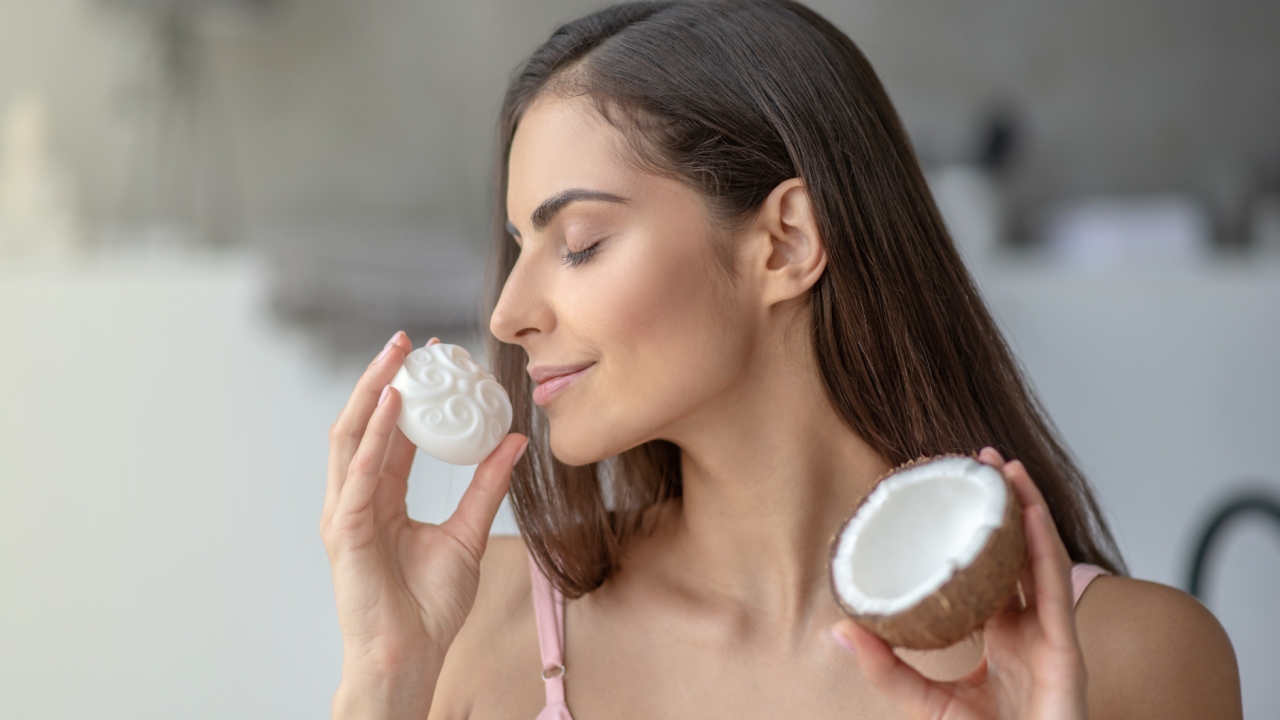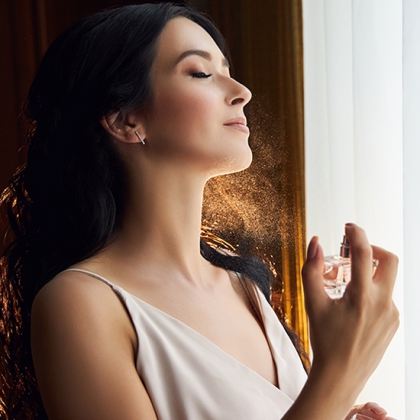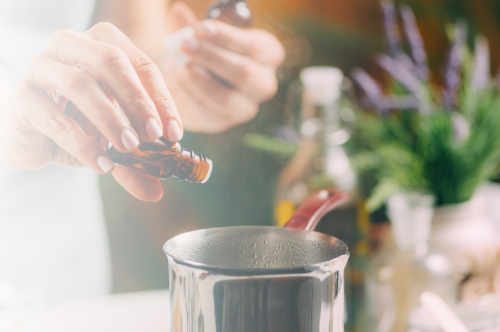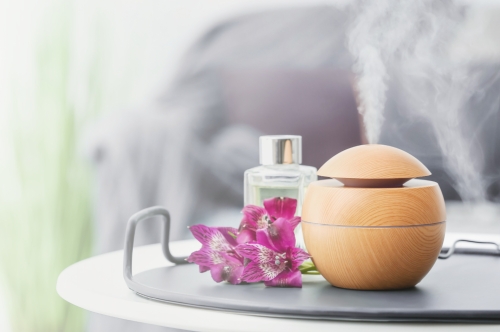What Are Scented Soaps: A Guide to Aromatic Cleansing

What are scented soaps?
Scented soaps are soaps that have added fragrances to enhance their aroma and appeal. They can be made from natural or synthetic ingredients, and they come in various forms, such as bars, liquids, gels, or foams. Scented soaps can create a relaxing, refreshing, or invigorating mood, depending on the type of fragrance used. They can also have therapeutic effects, such as soothing, moisturizing, or cleansing the skin.
Scented soaps have a long history, dating back to ancient times. The Egyptians, Greeks, Romans, and Arabs used various plants, herbs, spices, and oils to make perfumed soaps. They also used them for religious, medicinal, and cosmetic purposes. In the Middle Ages, scented soaps became a luxury item, reserved for the wealthy and the nobility. They were often made with exotic ingredients, such as musk, ambergris, and sandalwood. In the 18th and 19th centuries, scented soaps became more accessible and affordable, thanks to the industrial revolution and the development of synthetic fragrances. Today, scented soaps are widely available and popular, with a range of choices to suit different tastes and preferences.
Types of Scented Soaps
Bar Soaps
Bar soaps are the most traditional and common form of scented soaps. They are solid blocks of soap that are shaped and molded into various sizes and designs. Bar soaps are usually made with a base of fats or oils, such as coconut, palm, olive, or animal fats, and a strong alkali, such as sodium hydroxide or potassium hydroxide. The base is then mixed with water, fragrances, and other additives, such as colorants, preservatives, or exfoliants. Bar soaps are easy to use, store, and transport, but they can also dry out the skin, leave a residue, or harbor bacteria if not stored properly.
Liquid Soaps
Liquid soaps are scented soaps that are in a liquid or gel form. They are usually packaged in bottles, pumps, or dispensers, and they can be used with a sponge, a cloth, or a loofah. Liquid soaps are made with a similar base as bar soaps, but they have a lower concentration of alkali and a higher concentration of water. They also have additional ingredients, such as emulsifiers, stabilizers, thickeners, and humectants, to maintain their consistency and moisture. Liquid soaps are more convenient, hygienic, and gentle than bar soaps, but they can also be more expensive, wasteful, and harmful to the environment, due to their packaging and chemical content.
Fragrances in Scented Soaps
Essential Oils
Essential oils are natural fragrances that are extracted from plants, such as flowers, fruits, herbs, or spices. They are obtained by distillation, expression, or solvent extraction, and they have a concentrated and potent aroma. Essential oils are often used in scented soaps for their therapeutic benefits, as they can have antibacterial, antifungal, anti-inflammatory, or antioxidant properties. They can also affect the mood, emotions, and nervous system, creating a sense of relaxation, stimulation, or balance. Some of the most common essential oils used in scented soaps are lavender, rose, lemon, peppermint, tea tree, and eucalyptus.
Synthetic Fragrances
Synthetic fragrances are artificial fragrances that are created in laboratories, using chemical compounds, such as alcohols, esters, ketones, or aldehydes. They are designed to mimic or enhance natural fragrances, or to create new and unique ones. Synthetic fragrances are often used in scented soaps for their variety, intensity, and longevity. They can also be cheaper and more stable than essential oils. However, synthetic fragrances can also have negative effects, such as causing allergic reactions, skin irritations, or hormonal disruptions. Some of the most common synthetic fragrances used in scented soaps are vanilla, musk, amber, jasmine, and coconut.
Popular Fragrance Choices
The choice of fragrance in scented soaps depends on personal preference, mood, occasion, and season. Some people may prefer floral, fruity, or sweet scents, while others may opt for woody, spicy, or earthy ones. Some people may like light, fresh, or subtle scents, while others may enjoy strong, rich, or complex ones. Some people may stick to one signature scent, while others may change their scents according to their mood, occasion, or season. Some of the most popular fragrance choices for scented soaps are:
Lavender: a soothing, calming, and relaxing scent, ideal for bedtime or stress relief.
Lemon: a refreshing, energizing, and uplifting scent, ideal for morning or summer.
Rose: a romantic, feminine, and elegant scent, ideal for special occasions or pampering.
Peppermint: a stimulating, invigorating, and cooling scent, ideal for workout or winter.
Tea Tree: a cleansing, healing, and purifying scent, ideal for acne or infections.
Eucalyptus: a decongesting, soothing, and refreshing scent, ideal for colds or allergies.
Benefits of Scented Soaps
Scented soaps can have various benefits, depending on the type of soap and fragrance used. Some of the possible benefits are:
- They can make the bathing experience more enjoyable, pleasant, and luxurious.
- They can create a positive atmosphere, mood, and ambiance in the bathroom.
- They can stimulate the senses, especially the sense of smell, which is linked to memory and emotion.
- They can enhance the skin's appearance, health, and hygiene, by cleansing, moisturizing, or exfoliating it.
- They can provide aromatherapy, which is the use of natural fragrances to improve the physical, mental, and emotional well-being.
- They can reduce stress, anxiety, depression, or insomnia, by promoting relaxation, calmness, or sleep.
- They can boost energy, alertness, concentration, or creativity, by promoting stimulation, invigoration, or inspiration.
- They can balance the hormones, immune system, or metabolism, by promoting harmony, healing, or detoxification.
How to Choose the Right Scented Soap?
Choosing the right scented soap involves several considerations. Firstly, identify your skin type to select a soap that suits your needs, such as moisturizing for dry skin or oil-controlling for oily skin. Next, consider fragrance preferences; opt for calming scents like lavender for relaxation or invigorating citrus for a refreshing feel. Reading labels is crucial; avoid harsh chemicals like sulfates and parabens, which can irritate the skin, and opt for natural ingredients like essential oils and glycerin. Look for soaps labeled as hypoallergenic or formulated for sensitive skin if you have allergies or sensitivities. Ultimately, the perfect scented soap should cater to your skin's needs, delight your senses with its fragrance, and be made from high-quality, skin-friendly ingredients for a nourishing and enjoyable cleansing experience
Norex being the right choice to give aroma to your scented soaps
Norex offers an exceptional range of fragrances and essential oils ideal for scented soaps. Their selection encompasses top-quality ingredients sourced ensuring rich and captivating scents. From soothing lavender and invigorating citrus to exotic floral and woody notes, Norex provides a diverse array of options to suit various preferences. Our essential oils are renowned for their purity and potency, infusing soaps with delightful aromas that linger pleasantly on the skin. With Norex, soap makers can create luxurious products that captivate the senses and provide a truly indulgent bathing experience
FAQs
1. How do scented soaps differ from regular soaps?
Scented soaps contain added fragrances, providing a pleasant aroma during use, whereas regular soaps are typically fragrance-free and focus solely on cleansing properties.
2. Are scented soaps suitable for all skin types?
Scented soaps may not be suitable for all skin types, particularly sensitive or allergy-prone skin, as the added fragrances can potentially cause irritation or allergic reactions
3. What types of fragrances are commonly used in scented soaps?
Common fragrances in scented soaps include floral (such as rose or jasmine), fruity (like citrus or berry), herbal (lavender or mint), and woody (sandalwood or cedarwood) scents.
4. Can scented soaps cause skin allergies or irritations?
Scented soaps can cause allergies or irritations in some individuals, but with proper formulation and high-quality ingredients, they can offer luxurious cleansing experiences without adverse effects, delighting the senses.












